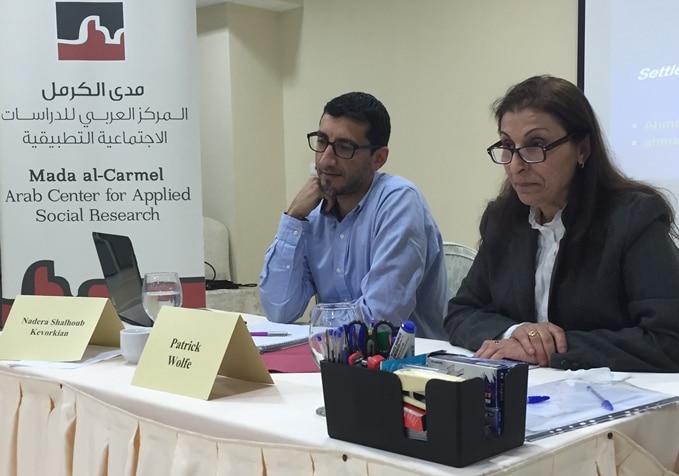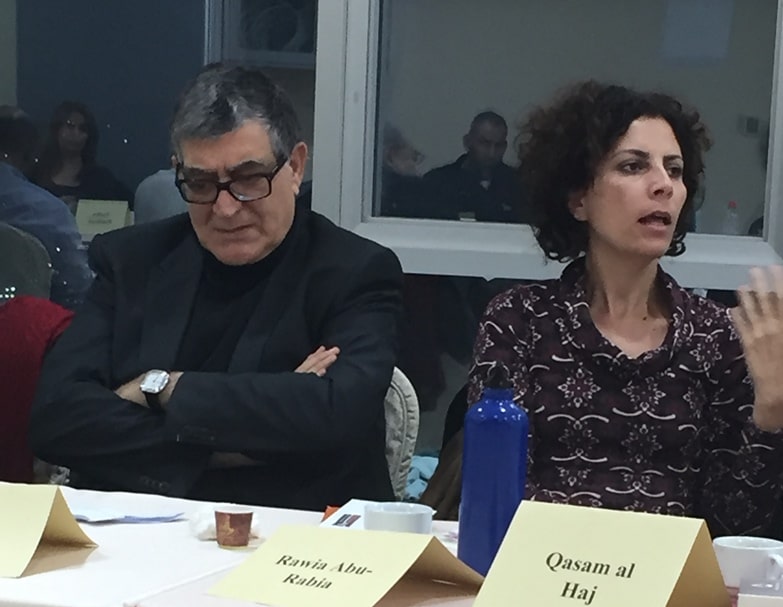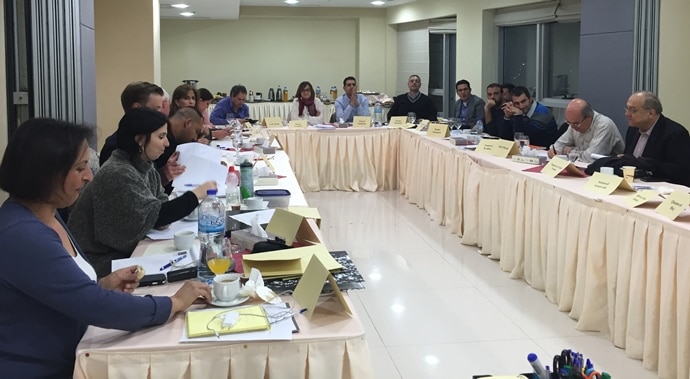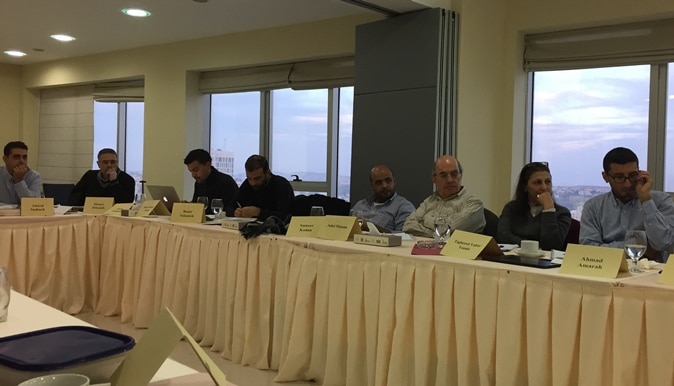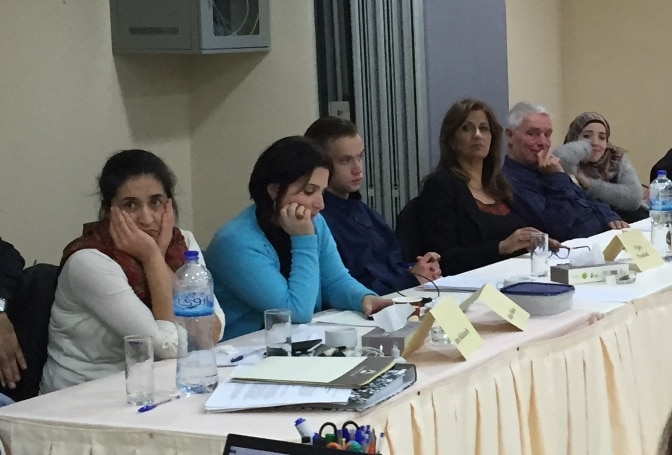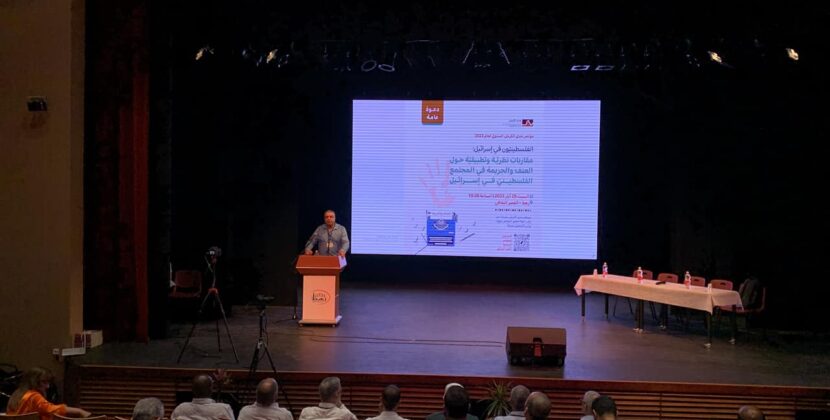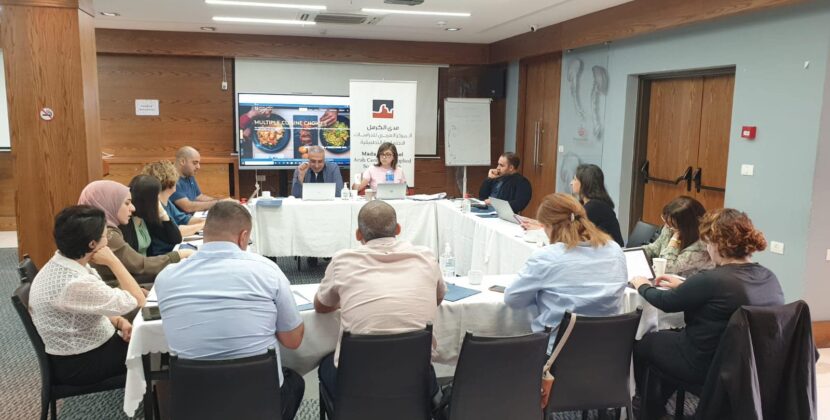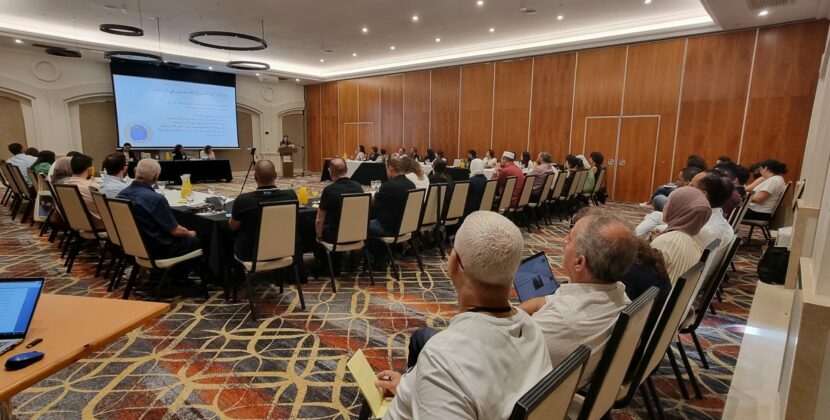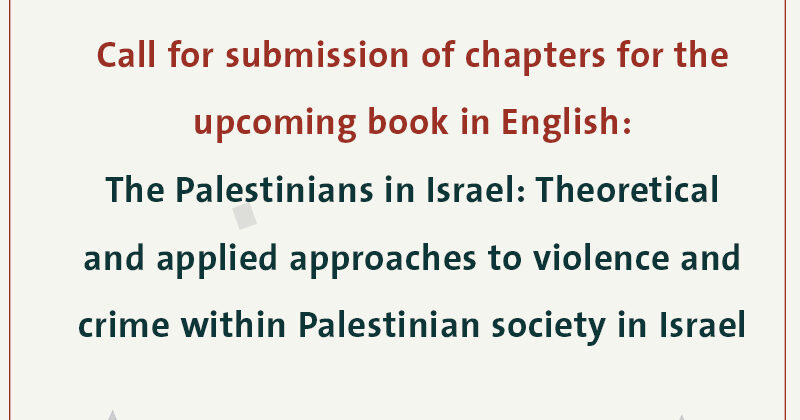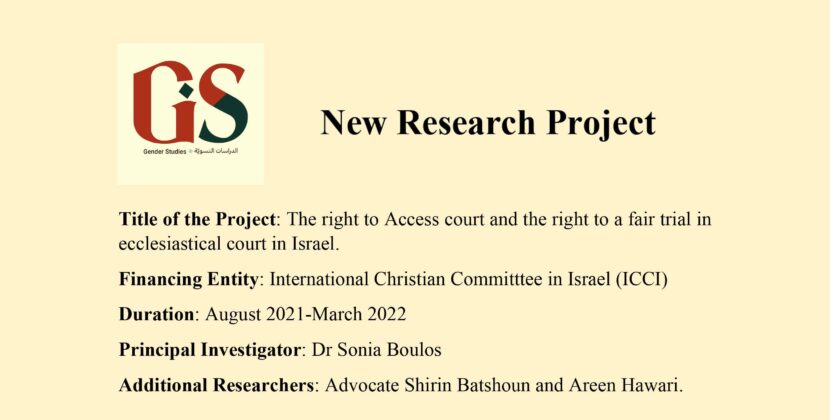Mada’s PhD Program hosts second workshop for students on Zionism & settler-colonialism
On December 16th and 17th, Mada al-Carmel hosted a workshop for Palestinian PhD students and postgraduates on “Zionism and Settler Colonialism”. The workshop, held in Ramallah, took place as part of Mada’s PhD Program, a project launched in January 2015 aiming to help develop the next generation of critical Palestinian scholars by creating a space for Palestinian PhD students and postgraduates to share their ideas, advance their work, and receive feedback from experts in their respective fields.
On the first day of the workshop, Mada director Nadim Rouhana presented the opening remarks. He noted the resurging importance of the settler-colonial framework, particularly after the failure of the Palestinian statehood project and of efforts to attain equal rights.
The first lecture of the day was given by Mahmoud Yazbak, Professor of Middle Eastern History. He presented a paper dealing with early Palestinian responses to Zionism based on analysis of the Arabic press from 1870-1917. He argued that while various Palestinian newspapers articulated strong critiques of the Zionist movement, there was relatively little organized Palestinian mobilization against Zionism throughout this period. He also sought to consider reasons why this may have been the case.
 The next lecture was given by Rana Barakat, Professor of History and Archaeology at Birzeit University. Drawing upon her ethnographic research on the Nakba with displaced refugees, she raised the question of whether even critical renditions of Palestinian history end up telling the story of Zionism as opposed to those of Palestinians. Questioning the value of categorizing settler-colonial projects as “successful” (Australia, North America) or “failed” (South Africa, Algeria), she proposed the idea of a continuous Nakba as an alternative framing. She also critiqued the ways in which certain Palestinian narratives demonstrate a need for recognition – to prove that “we were here” prior to 1948. Her lecture sparked discussion on whether it would be desirable or even possible to tell the story of Palestine without focusing strongly on Zionism.
The next lecture was given by Rana Barakat, Professor of History and Archaeology at Birzeit University. Drawing upon her ethnographic research on the Nakba with displaced refugees, she raised the question of whether even critical renditions of Palestinian history end up telling the story of Zionism as opposed to those of Palestinians. Questioning the value of categorizing settler-colonial projects as “successful” (Australia, North America) or “failed” (South Africa, Algeria), she proposed the idea of a continuous Nakba as an alternative framing. She also critiqued the ways in which certain Palestinian narratives demonstrate a need for recognition – to prove that “we were here” prior to 1948. Her lecture sparked discussion on whether it would be desirable or even possible to tell the story of Palestine without focusing strongly on Zionism.
The following lecture was given by Patrick Wolfe, Distinguished Visiting Professor in Colonial Studies at Arizona State University for 2015. Discussing the analogy between Israel and apartheid South Africa, he elaborated on the differences between settler-colonialism and other forms of colonialism, proposing that the intent of pure settler-colonialism is to replace the indigenous population with a settler population, rather than to extract surplus from their labor. He remarked that South African delegations to Palestine found conditions in the West Bank worse than at home, because Zionism is based around a logic of elimination rather than one of exploitation. Noting the alignment between individual settlers and the Israeli state, he also argued that no hard-and-fast distinction could be made between civilian and military occupiers in the West Bank.
The final lecture of the workshop’s first day was given by Ahmad Amarah, a member of the workshop and a PhD candidate at New York University, who discussed the ongoing reality of settler-colonialism in the Naqab. He argued that the concept of “terra nullius,” or no man’s land, has been used by settler colonialists to claim land at various times. He discussed the state’s use of legal means to facilitate Zionist dispossession of Palestinian Bedouin. He also remarked on the framing of settler-colonialism as a form of development or modernization, in contrast to the alleged primitivity and lawlessness of the Bedouin community.
 The second day began with a lecture by Vijay Prashad, Professor of International Studies at Trinity College and journalist at Frontline, al-Araby al-Jadeed, and The Hindu. He began by emphasizing the importance of approaching history from the “standpoint of the toilers” – those at the margins of society whose experiences are underrepresented in official records. Discussing the Oslo Accords and their stifling impact on Palestinian resistance, he argued that the Palestinian leadership’s capitulation mirrored the entire third world’s surrender to neoliberalism during the same era. He offered a critique of the dominance of NGOs over the Palestinian liberation movement and of the limiting impact of funders’ agendas. He also argued that international politics is entering a new phase of multipolarity, and that the Israeli state has been quicker to adapt to this change than the Palestinians.
The second day began with a lecture by Vijay Prashad, Professor of International Studies at Trinity College and journalist at Frontline, al-Araby al-Jadeed, and The Hindu. He began by emphasizing the importance of approaching history from the “standpoint of the toilers” – those at the margins of society whose experiences are underrepresented in official records. Discussing the Oslo Accords and their stifling impact on Palestinian resistance, he argued that the Palestinian leadership’s capitulation mirrored the entire third world’s surrender to neoliberalism during the same era. He offered a critique of the dominance of NGOs over the Palestinian liberation movement and of the limiting impact of funders’ agendas. He also argued that international politics is entering a new phase of multipolarity, and that the Israeli state has been quicker to adapt to this change than the Palestinians.
The next lecture was given by Yehouda Shenhav, Professor of Sociology. He began by offering a critique of dominant strains in the Israeli left, which maintain faith in the discourse of peace negotiations and portray the conflict as an issue of inter-religious struggle. He went on to discuss the positionality of Arab Jews in relation to Israeli and Palestinian politics. Presenting the results of linguistic research, he noted that only a tiny fragment of Israeli Jews are fluent in Arabic. He suggested that increased knowledge of Arabic among Israeli Jews could greatly change political realities. A lively debate over this point ensued, with some noting that Israeli Jews in the military and other state institutions learn Arabic to better “know the enemy.”
The workshop’s final lecture was presented by Gadi Algazi, Professor of History. He proposed that settlers are means within the project of settler-colonialism, noting that trees were planted on top of ethnically cleansed Palestinian villages when not enough human capital was available. He noted divergences between “colonial entrepreneurs,” who seek to profit off of indigenous labor, and “pure Zionists,” who seek the elimination of the Palestinian population. He put forth a distinction between imperialism and settler-colonialism, arguing that Israel’s imperial project largely failed whereas its settler-colonial project succeeded. His lecture sparked discussion on the role of indigenous elites in facilitating continued Israeli colonization, as well as on the limitations of legal discourse as a means of attaining liberation.
As part of a series of workshops held by the PhD Program to work through critical readings on Zionism and settler-colonialism, Mada is planning a third workshop to be held in Amman in March 2016. The workshop will focus on culture and colonialism.







